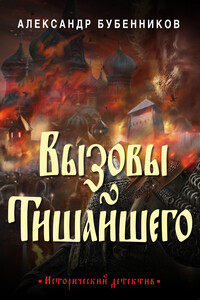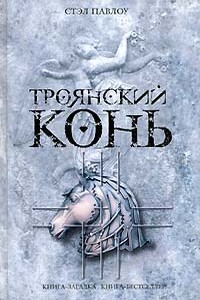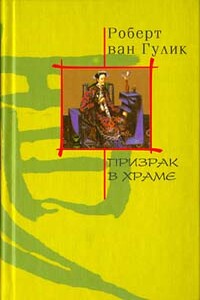The Devil in the Marshalsea - [3]
Early that morning my landlord and three other creditors had burst into my room and clapped an action on me for twenty pounds in unpaid rent and other debts. The warrant had given me just one day’s grace to pay enough to satisfy them. If I failed I would be arrested at once and thrown in gaol.
Little frightened me in those days. I was five and twenty and death seemed a distant, hazy thing. But I knew three men who had been sent to a debtors’ gaol in the last year. One had died of a fever, another had been stabbed in a fight and only just survived. The third had passed through the prison gates a fat, cheerful fellow and emerged six months later a grey, stuttering skeleton. He refused to say what had happened to him and there was a look in his eyes when we pressed him… as if he’d rather die than speak of it.
And so I’d flung on my clothes and run out into the brightening streets to call in every debt and favour I could think of. When that wasn’t enough I’d pawned everything of value, until my room was stripped as bare as a maid on her wedding night. I saved only two items of any worth – my dagger for protection and my best suit for deception. (A little swagger and a few gold buttons will open most doors in London.) My creditors had demanded half what they were owed as proof they would see the rest in good time. As the sun set I counted out what I had made: two guineas and a handful of pennies. Hardly a quarter the sum I needed.
It was then that I was forced to do what I had been avoiding all day – I turned to Charles for help. We had been as close as brothers at school and at Oxford, but in the last few years our friendship had faltered. My old companion in mischief had become the Reverend Charles Buckley, a civil, sober gentleman who gave afternoon lectures to enraptured old ladies at St George’s on Hanover Square. All of this was well and good, I supposed, until he’d started to lecture me on my own behaviour. I was not an enraptured old lady. I had not seen him for several months.
Charles lived with his patron, Sir Philip Meadows, in a large house near St James’ Square. It wasn’t a long way from my lodgings but my footsteps were slow and heavy as I walked along Piccadilly. I couldn’t bear the thought of burdening him with my troubles, and worse – I knew he would forgive me for it in a moment. I was on the brink of being ashamed of myself – an uncomfortable feeling.
Luckily, when I explained my predicament to Charles he scolded me so hard that I quite forgot to feel ashamed and swore at him for being such a damned prig.
‘Oh, for heaven’s sake, hand me the warrant,’ he snapped and began to read. He gave a grunt of surprise. ‘This is for the Marshalsea. You must know that Sir Philip is Knight Marshal?’
Must I? I knitted my brows. I tended to drift off when Charles talked about his illustrious patron and his family, except when he mentioned Sir Philip’s two eldest daughters. That always roused me. ‘He owns the gaol?’ I guessed.
‘The king owns it,’ Charles replied absently, reading further. ‘Sir Philip administers it in his name. Well – he hires the head keeper… my God, Tom – twenty pounds? You owe these men twenty pounds? That’s more than I earn in six months.’ He peered at the warrant, as if hoping the numbers might rearrange themselves into something smaller if he squinted hard enough.
‘London is a costly place to live.’
He gestured at the gold buttons on my waistcoat. ‘It needn’t be.’
Another lecture. ‘Very well.’ I snatched the warrant from his hands and stuffed it in my pocket. ‘If I promise to dress in brown stockings and drab fustian breeches from now on, will you help me?’
Charles laughed, despite himself. ‘Of course I’ll help you.’ He pulled an iron box from a high shelf, unlocked it and tipped out a small pile of coins. ‘Will this be enough?’
I counted it quickly. A little under four pounds. Even if I took every last penny, it wouldn’t save me from gaol.
‘I can find more,’ Charles said anxiously. He stole a glance at his belongings, assessing their worth with narrowed eyes. ‘It may take a little while.’
Ah, now – there it was. Now I felt ashamed. ‘I will borrow this and no more,’ I declared, martyr-like. ‘And you will have it back, Charles – you have my word. By the end of the evening, I hope.’
I hadn’t been quite that fortunate. Over five straight hours at the gaming tables I had lost and won, won and lost, never quite reaching the ten pounds my creditors had demanded. Charles – who had insisted on accompanying me – paced about, or sat in a corner chewing his nails, left the room, came back, left it again. It grew late and I lost six times in a row, leaving me with a little over five pounds – less than I had arrived with. But I was playing Faro now and in this final game I had built up my stake one card at a time. If I bet on the right card last I would double my winnings.
But if I chose the wrong card… I would lose everything.

"Tom Hawkins is one of the best protagonists to come along in years. Magnificent!" – Jeffery Deaver"A terrific historical thriller." – Missourian"As good as her stellar debut… Pitch-perfect suspense." – Publishers Weekly, starred reviewLondon, 1728. Tom Hawkins is headed to the gallows, accused of murder. Gentlemen don't hang and Tom's damned if he'll be the first – he is innocent, after all. It's hard to say when Tom's troubles began. He was happily living in sin with his beloved – though their neighbors weren't happy about that.

1885 год. Начальник почты в Коломне, Феликс Янович Колбовский, оказывается свидетелем того, как купец Гривов получает письмо, которое вызывает у него неописуемую радость. Однако на следующий же день купца находят повесившимся. Колбовскому это кажется странным, да и супруга купца уверена, что тот не мог покончить с собой. Феликс Янович убеждает своего друга – судебного следователя Кутилина – продолжить расследование. А сам Колбовский, увлеченный зарождающейся наукой графологией, параллельно ищет убийцу, анализируя почерк всех подозреваемых.

Это стало настоящим шоком для всей московской знати. Скромный и вроде бы незаметный второй царь из династии Романовых, Алексей Михайлович (Тишайший), вдруг утратил доверие к некогда любимому патриарху Никону. За что? Чем проштрафился патриарх перед царем? Только ли за то, что Никон объявил террор раскольникам-староверам, крестящимися по старинке двуперстием? Над государством повисла зловещая тишина. Казалось, даже природа замерла в ожидании. Простит царь Никона, вернет его снова на патриарший престол? Или отправит в ссылку? В романе освещены знаковые исторические события правления второго царя из династии Романовых, Алексея Михайловича Тишайшего, начиная от обретения мощей святого Саввы Сторожевского и первого «Смоленского вызова» королевской Польше, до его преждевременной кончины всего в 46 лет. Особое место в романе занимают вызовы Тишайшего царя во внутренней политике государства в его взаимоотношениях с ближайшими подданными: фаворитами Морозовым, Матвеевым, дипломатами и воеводами, что позволило царю избежать ввергнуться в пучину нового Смутного времени при неудачах во внутренней и внешней политике и ужасающем до сих пор церковном расколе.

1906 год. Матильде 16 лет, и больше всего на свете она любит читать. Однако ей предстоит провести всю жизнь на ферме в Северных Лесах, хлопотать по хозяйству, стать женой и матерью, заботиться о семье. О другой судьбе нечего и мечтать. Зря учительница говорит, что у Мэтти есть талант и ей нужно уехать в Нью-Йорк, поступить в университет, стать писательницей… Устроившись на лето поработать в отель «Гленмор», Мэтти неожиданно становится хранительницей писем Грейс Браун, загадочно исчезнувшей девушки. Может ли быть, что, размышляя о жизни Грейс, Матильда решится изменить свою?

После отмены крепостного права, побед на Балканах в Российской империи разрабатываются конституционные изменения. Однако внутренние и внешние враги самодержавия начинают охоту на императора: пущен под откос царский поезд, взорван Зимний дворец. Расследованием этих преступлений поручено заниматься адъютанту Великого князя Константина Николаевича, капитану второго ранга Лузгину.

В нью-йоркском музее «Метрополитен» неизвестный маньяк убивает нескольких музейных служителей и берет в заложники одиннадцатилетнего мальчика. В обмен на заложника преступник требует встречи с Джеймсом Нортом, детективом четвертого полицейского округа Нью-Йорка.Сам Норт не знает, что его судьба сплетена с линией бессмертной судьбы Киклада, критянина, погибшего в бою в древней Трое, и протягивается через Рим времен Нерона, Византию, империю Карла Великого, средневековую Прагу, чтобы странным образом влиться в многоликую сущность, которая единственная способна противостоять Атанатосу, воплощению мирового зла.

Голландец Роберт ван Гулик (1910-1967) не собирался быть профессиональным литератором. Большую часть жизни он прослужил в Пекине на дипломатической службе Ее Величества королевы Нидерландов. Однако, снимая по вечерам смокинг, ван Гулик садился за письменный стол – и постоянный герой его романов древнекитайский судья Ди Жэнь-цзе брался за расследование нового, необычайно загадочного преступления. – Разгадка тайны, Ваша светлость, кроется в рисунке на этой древней шкатулке. – Ма Жун почтительно склонился перед судьей.– Дело в том, что люди, замешанные в этом деле, верят в отвратительное учение, согласно которому, совокупление мужчины и женщины уподобляет людей богам и обеспечивает им спасение.– Меня не интересуют эти мерзкие ритуалы, – нахмурился судья Ди.